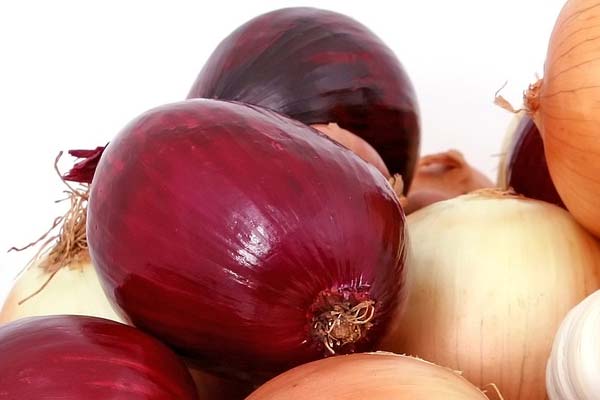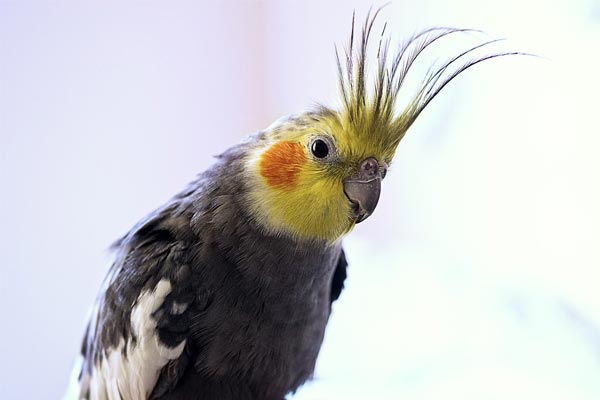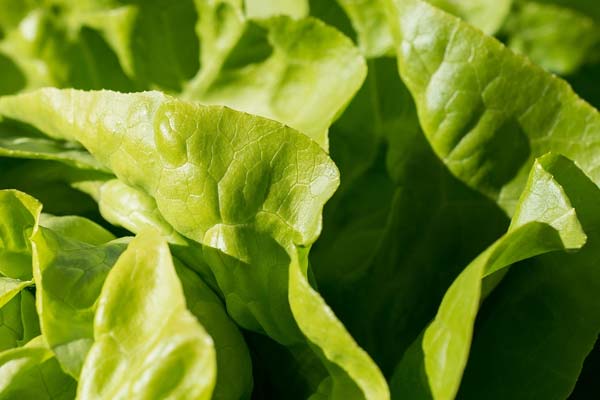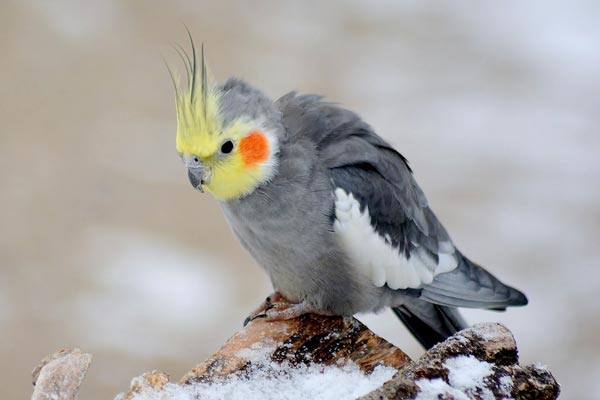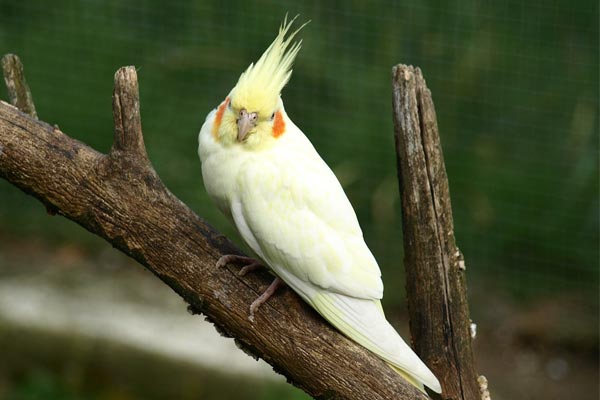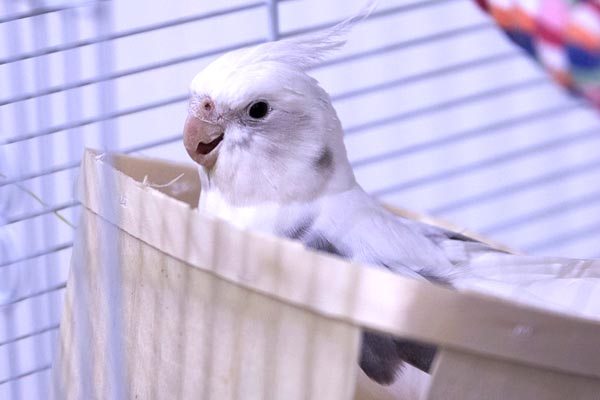Can Cockatiels Eat Onions? The Deadly Truth Unveiled!
Cockatiels are among the most famous pet birds for their charming personalities and playful nature.
These birds are also known for their healthy appetite, and their owners often wonder what foods are safe for them. One food that often comes up in this discussion is onions. Can cockatiels eat onions?
The answer is no; cockatiels should not eat onions. Onions contain thiosulphate, which can irritate the gastrointestinal system and cause bird anemia. If you wish to offer your cockatiel a taste of onion, always cook it before feeding.
However, avoiding giving them onions entirely is best to safeguard their health. As a responsible pet owner, understanding safe foods for your cockatiel is essential.
Why Onions are Toxic for Cockatiels
Cockatiels, popular pets, need a balanced diet for good health. Although they can eat fruits and veggies, some foods, like onions, are harmful and should be avoided. Onions are toxic to cockatiels.
The toxicity of onions for cockatiels is mainly due to sulfur compounds, such as thiosulphate, which harm birds.
The sulfur compounds in onions can damage the red blood cells in a cockatiel’s body, leading to a condition known as hemolytic anemia. This condition can cause weakness, lethargy, and even death in severe cases.
Furthermore, onions have a high acidity level, which can irritate a cockatiel’s digestive system. The acidity can cause vomiting and diarrhea, leading to dehydration and electrolyte imbalance. These adverse effects can further worsen the bird’s health and lead to other complications.
In addition to the above, onions can cause oxidative damage to a cockatiel’s organs. The damage can lead to liver and kidney failure, which can be fatal. Therefore, it is essential to avoid feeding onions to cockatiels.
Risks and Symptoms of Onion Poisoning
Onions are common in many human dishes, but they are unsafe for cockatiels. Onions contain thiosulphate, which can cause seizures and liver failure in birds.
In severe cases, onion toxicity can even lead to anemia. As a result, it is best to avoid feeding your cockatiel onions altogether.
Eating onions can cause various poisoning symptoms in cockatiels, which may vary based on the amount consumed and the bird’s size.
Anemia and Its Symptoms
One of the most serious consequences of onion poisoning is anemia. Onions can damage a bird’s red blood cells, leading to a drop in hemoglobin levels. This can cause a range of signs and symptoms, including:
- Weakness and lethargy
- Pale beak, tongue, and skin
- Rapid breathing and heart rate
- Loss of appetite
- Weight loss
If you suspect your cockatiel is suffering from anemia, it is crucial to seek veterinary care immediately. Anemia can be life-threatening if left untreated.
Ulcers and Gastrointestinal Issues Caused by Onions
Onions can induce gastrointestinal issues in birds due to their sulfur compounds, which irritate the stomach and intestines, potentially causing ulcers and digestive problems. Some common symptoms of onion poisoning in birds include:
- Vomiting
- Diarrhea
- Loss of appetite
- Abdominal pain and discomfort
If your cockatiel is experiencing any of these symptoms after ingesting onions, it is vital to remove onions from its diet immediately and seek veterinary care. Your vet may recommend supportive care such as fluids and medication to help your bird recover.
How Much Onion is Toxic for a Cockatiel?
Onions are toxic to cockatiels due to thiosulfate, which can harm their red blood cells, potentially causing anemia, weakness, and even death. To keep your cockatiel safe and healthy, it’s best to refrain from feeding them any onions. The level of toxicity may vary based on the onion variety, preparation, and cooking method used.
Some experts say a small amount of onion may not harm a cockatiel. However, no consensus exists on how much onion is safe for a cockatiel to eat. It is best to err on caution and avoid feeding onions to your feathered friend altogether.
If you suspect your cockatiel has consumed onions or other toxic food, seek veterinary care immediately. Symptoms of onion toxicity in birds may include weakness, lethargy, difficulty breathing, and discolored urine.
Safe Foods and Alternatives for Cockatiels
Cockatiels require a well-rounded diet that includes a variety of fruits, vegetables, and grains. Here are some safe foods and alternatives for cockatiels:
Bird-Safe Vegetables and Fruits
Cockatiels can safely enjoy a variety of fruits and veggies. Some examples include:
- Apples
- Berries (strawberries, raspberries, blueberries)
- Melons (cantaloupe, honeydew)
- Bananas
- Grapes
- Mangoes
- Oranges
- Papayas
- Pineapple
- Carrots
- Broccoli
- Kale
- Sweet potatoes
- Squash
- Zucchini
Nutritional Values of Safe Foods Compared to Onions
Onions are unsafe for cockatiels to eat, as they contain thiosulphate, which can cause seizures and liver failure in birds. However, plenty of safe alternatives can provide similar nutritional benefits.
For example, sweet potatoes provide essential vitamin A for maintaining healthy skin, feathers, and eyesight in cockatiels. Broccoli is rich in vitamin C, which actively fortifies the immune system and aids disease prevention.
Special Considerations for Cockatiels
Regarding feeding cockatiels, there are a few special considerations to remember. This is especially true regarding onions, which can harm these birds.
Avoiding Onions for Baby Cockatiels
Baby cockatiels have delicate digestive systems, and onions can cause gastrointestinal irritation and anemia. Therefore, it is best to avoid feeding onions to baby cockatiels altogether. Instead, focus on providing them with a well-balanced diet of commercial seed mix and fresh fruits and vegetables.
Safe Cooking Practices Around Cockatiels
If you want to feed onions to your adult cockatiel, it is essential to take certain precautions. For example, always cook onions thoroughly before feeding them to your bird. This will help to reduce the risk of gastrointestinal irritation and anemia.
It is also essential to be mindful of your cooking environment. Cockatiels are sensitive to fumes and can be harmed by the chemicals in non-stick cookware. As such, it is best to cook with stainless steel or cast iron cookware and to avoid using non-stick sprays or pans.
What Should You Do if Your Cockatiel Eats Onions?
If your cockatiel eats onions by accident, immediately prevent harm and seek veterinary assistance for further guidance.
Immediate Steps to Take If Ingestion Occurs
If you suspect your cockatiel has eaten onions, take the following steps:
- Remove any remaining onion from your cockatiel’s cage or food dish.
- Offer your cockatiel fresh water to drink.
- Monitor your cockatiel for signs of distress, such as vomiting, diarrhea, or difficulty breathing.
- If your cockatiel exhibits any concerning symptoms, seek veterinary help immediately.
Seeking Veterinary Help and Advice
If your cockatiel has ingested onions, seeking veterinary help and advice is crucial. A veterinarian can assess your cockatiel’s condition and provide appropriate treatment.
At the vet visit, the veterinarian will assess the onion toxicity through physical examination and diagnostic tests. Supportive care, like fluid or oxygen therapy, will aid your cockatiel’s recovery.
Sometimes, the veterinarian may need to hospitalize your cockatiel for observation and treatment.
It is essential to follow the veterinarian’s recommendations and instructions for care to ensure the best possible outcome for your cockatiel.
Remember, prevention is critical. Avoid feeding your cockatiel onions or other foods that are toxic to birds. If you have concerns about your cockatiel’s diet or health, seek veterinary help and advice.
Frequently Asked Questions About Cockatiel Diets
Cockatiels are popular pets that require a balanced diet to stay healthy. Here are some frequently asked questions about cockatiel diets:
What should a cockatiel’s diet consist of?
A healthy cockatiel diet should contain fresh fruits, vegetables, and seeds. Pellets can also be included in the diet but should not be the only food source. It is crucial to provide a balanced diet to ensure the bird receives all the necessary nutrients.
What foods are toxic to cockatiels?
Avoid feeding cockatiels toxic foods like chocolate, avocado, caffeine, alcohol, high salt, high sugar, onions, and garlic, as they can cause gastrointestinal irritation, anemia, and other health issues.
Can cockatiels eat cooked foods?
Yes, cockatiels can eat cooked foods as long as they are not seasoned with salt, sugar, or other harmful ingredients. Cooked vegetables and grains can be a healthy addition to a cockatiel’s diet.
Can cockatiels eat nuts?
Yes, cockatiels can eat nuts, but they should be given in moderation. Nuts are fatty and can cause obesity if overeaten. For a cockatiel, remove shells and any salt or seasoning before offering them nuts.
Should cockatiels be given supplements?
Cockatiels do not require supplements if they are given a balanced diet. However, a vitamin D supplement may be necessary if a cockatiel lacks sunlight.
How often should a cockatiel be fed?
Cockatiels should be fed twice a day, in the morning and evening. Fresh water should also be provided at all times.
Conclusion
In conclusion, cockatiels should never be fed onions as they are toxic and can lead to serious health issues. Providing a balanced diet of safe foods is essential for their well-being. If ingestion occurs, seek immediate veterinary help. Be a responsible owner and prioritize your cockatiel’s health and happiness.

